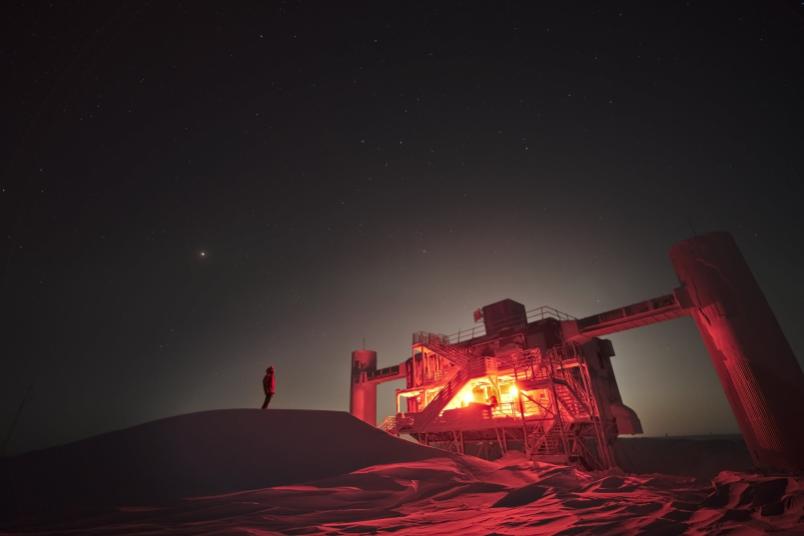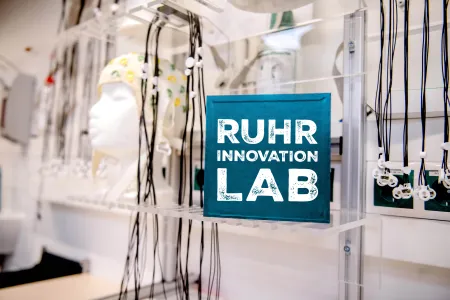
The IceCube neutrino detector research laboratory at the South Pole. The second generation of the detector could be built here in the future.
Research infrastructure prioritization
Two Projects with Bochum Participation on the Shortlist
The Federal Ministry of Education and Research has identified the most important research infrastructure projects in Germany. Bochum is represented twice, together with the UA Ruhr partner university in Dortmund.
Two projects involving Ruhr University Bochum have made it onto the Federal Ministry of Education and Research’s shortlist of the most promising research infrastructure projects: the second expansion stage of the IceCube neutrino detector and the preliminary work for the Einstein Telescope. In its national prioritization process, the Ministry selected 32 projects from 58 submissions for evaluation; nine of them made it onto the shortlist, which attests to their outstanding importance for Germany’s leading position in innovation and research.
The selected teams can now discuss with the Federal Ministry about funding for the German share of the projects. Each have announced the need for a financial volume of the German share that is more than 50 million euros for research and development.
IceCube neutrino detector
The IceCube-Gen2 neutrino observatory is a planned extension of IceCube at the South Pole. Researchers have been using the neutrino detector to search for the sources of cosmic radiation since 2009. With IceCube-Gen2, neutrino research is to be transferred from the discovery phase to the precision era. At the same time, it shall contribute to geophysics, glaciology and climate science. Several groups from Ruhr University Bochum are cooperating closely in the IceCube consortium, in particular with partners from the Technical University of Dortmund. Nine German universities and the two research institutes KIT and DESY are members of the consortium.
More about IceCube
Einstein Telescope
The Einstein Telescope is a planned large-scale international project in its early stages, which is intended to make signals from the accretion of compact objects of black holes and neutron stars, observable over cosmic times by detecting gravitational waves. In addition to Bochum Physics, Geology is also involved in the project. Ruhr University and TU Dortmund University are closely working together in this project as well.
More about the Einstein Telescope
